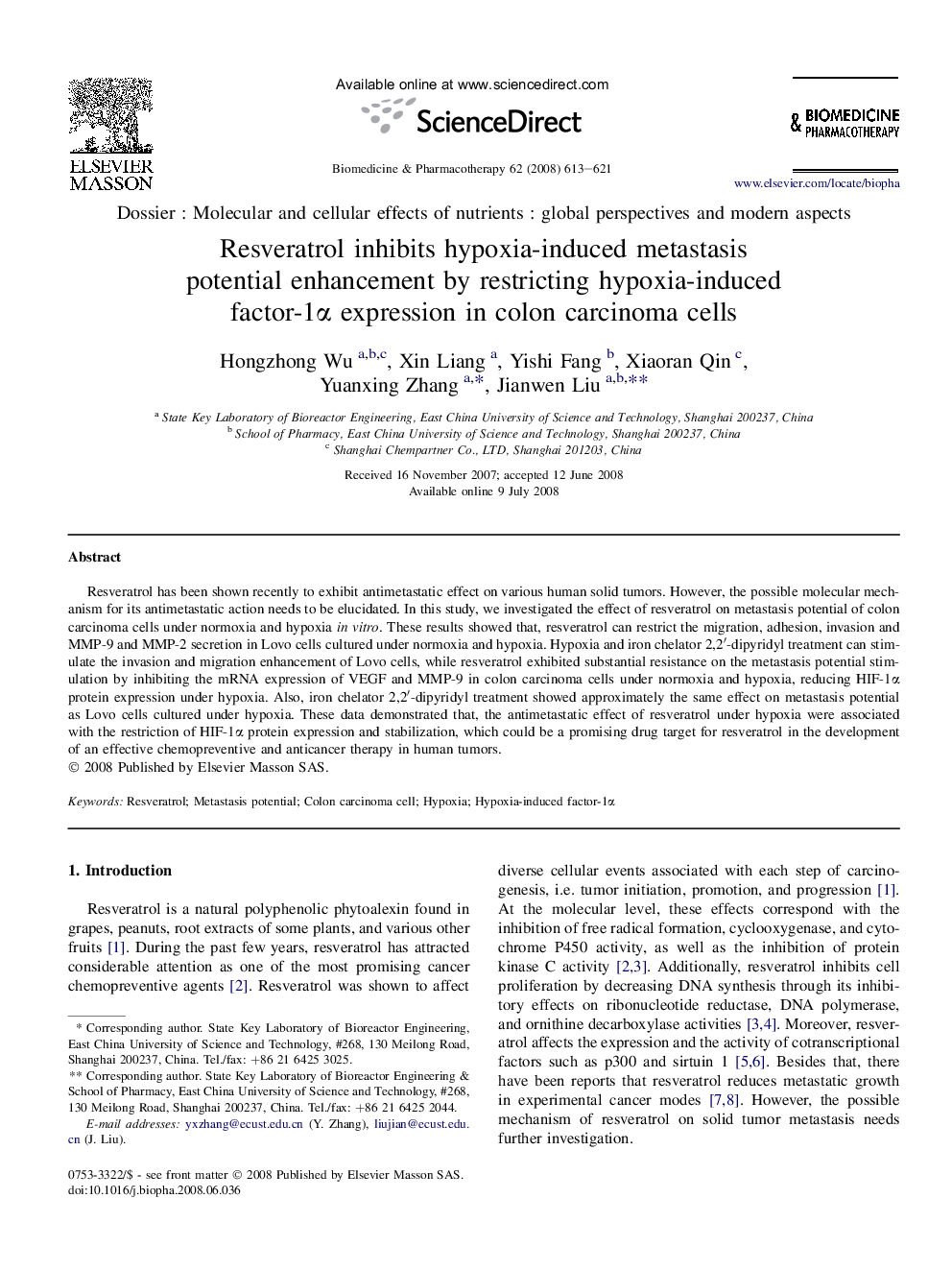| Article ID | Journal | Published Year | Pages | File Type |
|---|---|---|---|---|
| 2525497 | Biomedicine & Pharmacotherapy | 2008 | 9 Pages |
Resveratrol has been shown recently to exhibit antimetastatic effect on various human solid tumors. However, the possible molecular mechanism for its antimetastatic action needs to be elucidated. In this study, we investigated the effect of resveratrol on metastasis potential of colon carcinoma cells under normoxia and hypoxia in vitro. These results showed that, resveratrol can restrict the migration, adhesion, invasion and MMP-9 and MMP-2 secretion in Lovo cells cultured under normoxia and hypoxia. Hypoxia and iron chelator 2,2′-dipyridyl treatment can stimulate the invasion and migration enhancement of Lovo cells, while resveratrol exhibited substantial resistance on the metastasis potential stimulation by inhibiting the mRNA expression of VEGF and MMP-9 in colon carcinoma cells under normoxia and hypoxia, reducing HIF-1α protein expression under hypoxia. Also, iron chelator 2,2′-dipyridyl treatment showed approximately the same effect on metastasis potential as Lovo cells cultured under hypoxia. These data demonstrated that, the antimetastatic effect of resveratrol under hypoxia were associated with the restriction of HIF-1α protein expression and stabilization, which could be a promising drug target for resveratrol in the development of an effective chemopreventive and anticancer therapy in human tumors.
